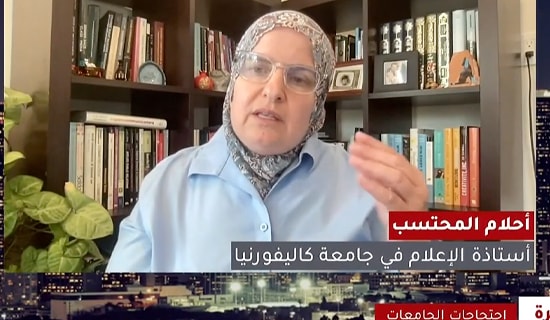
On August 7, 2008, Al-Arabiya TV held an interview with Ahmad Fuad, the last king of Egypt, who ruled nominally from the age of six months, when his father King Farouq abdicated the throne to him under pressure of the revolution, until the declaration of the republic almost a year later. Following are excerpts:
Interviewer: Good evening, your Highness. I am honored to interview you, and to give Arab viewers the chance to meet King Ahmad Fuad. The interview will be conducted in French, and at the bottom of the screen, dear viewers, you will be able to follow the Arabic subtitles.
[...]
Your Highness, did you understand the fall of King Farouq?
Ahmad Fuad: In my view, there were multiple reasons. I do not know if we can go into details. My father did not want to shed blood. Otherwise, he could have held onto power, like many of the...
Interviewer: Leaders...
Ahmad Fuad: Just like many leaders do, or did – but he did not want to shed a single drop of Egyptian blood, and so he agreed to leave under conditions that he deemed honorable. He agreed to abdicate, and keep Egypt a monarchy. I prefer to call it a coup d'état rather than a revolution. The people did not take to the streets demanding to have him removed. Part of the army that did not want him anymore took over, and later they won the support of the people by referendum, but this was much later. That is how I view my country's history.
[...]
His rule was different from what is prevalent today. He did not seek the support of the masses, and so he did not deliver grand speeches to the people. The people around him loved him. Unfortunately, he was also surrounded by people who took advantage of the situation in order to get rich. This cannot be denied, but I prefer to focus on what he tried to achieve for his country, and I believe that in the final analysis, his rule was much better than what people say. He tried to unite the Arab world, and he succeeded in doing so – the Arab League was founded in Cairo, and in those days, there was a great hope that the Arab world would unite around Egypt. This is the most important achievement of his foreign policy.
Unfortunately, there were also the events surrounding the creation of the State of Israel, and the tragedy of the loss of Palestine. Egypt, and my father in particular, received most of the criticism for that military defeat, but in my view, it is not fair to blame him for that. In addition, if we examine the situation, the armistice agreement following 1948 was not such a disaster as it is depicted.
[...]
Interviewer: Have you ever felt resentment towards anybody?
Ahmad Fuad: Not really. Especially now, when I see that people have begun to appreciate the role of our family, and to appreciate my father as a generous man, who tried to accomplish things for his country and even succeeded at times, and when I see that he is now judged by history in a more balanced manner. I am not resentful anymore, but for a long time I was, as I was asking myself how come all countries reviewed their history, reaching more balanced judgments after 20 years, but in Egypt – even though 50 years have passed since the revolution – only now are we seeing shows on Egyptian TV presenting my family in a positive light, and there are serious historians and academics – not just some weirdoes, or old people nostalgic for their days of youth or for a supposedly golden era... Now there are serious people who have begun to talk about this history. This makes me happy, and so I feel no resentment anymore, Allah be praised.
Interviewer: Your Majesty, who assassinated King Farouq?
Ahmad Fuad: People in the secret service, in the days of Gamal Abd Al-Nasser, but I don't think that is a secret anymore. I don't know what they were afraid of. My father did not conduct any political activity, and had no aspirations to return to the throne in Egypt. So I cannot understand why they perpetrated this crime, or what the political motive was.
[...]
Interviewer: Your Highness, I'd like to thank you for this interview. It is, of course, a great honor for us to be the first Arab TV network to interview you. It was your first TV appearance on an Arab channel. I hope the family of King Farouq will regain prominence in Arab society and in the world.
Thank you, dear viewers, for watching. Good night.
As the credits scroll up, the tune of "Ha-Tikva", the Israeli national anthem, is played in the background












